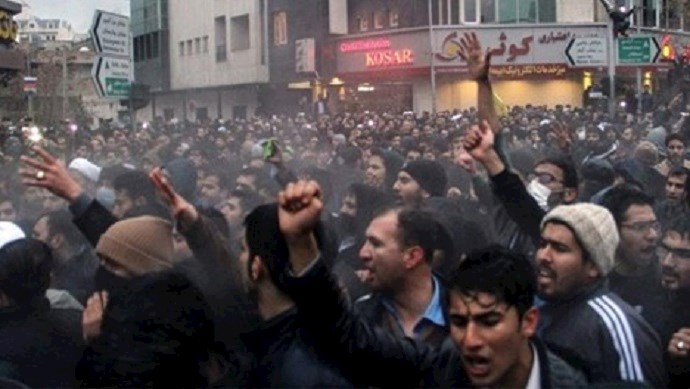Analyzing by PMOI/MEK
Iran, March 27, 2021—In less than 24 hours protests were reported in cities and towns located in northern and southern areas of north and south ran on Tuesday and Wednesday.
On March 24, people in the city of Gonbad Kavus in northeast Iran took to the streets protesting the raping and sexual harassment of two small girls by a security guard at the Golestan Dam. Public anger escalated further after the regime’s judiciary chief Ebrahim Raisi attempted to cover up the security guard’s crime. The regime’s public prosecutor in Gonbad Kavus claimed “the forensics report has denied any sign of rape” and said the accused security guard has been summoned and after questioning has been charged with “kidnapping.”
Following these remarks by the regime’s public prosecutor, locals of the Arab Sorrank village took to the streets in protest outraged over repressive measures by the regime’s State Security Force.
The regime also dispatched anti-riot units to Gonbad Kavus in a desperate attempt to quiet the rallies and prevent these protests from expanding to neighboring cities and towns.
“The [regime’s] sworn opponents and enemies tried to divide and create insecurity in the province through social media and internet websites, and their internal agents, through taking advantage of the Gonbad incident,” said Ali Malek Shahkoohi, the Revolutionary Guards (IRGC), commander in Golestan province, on Thursday.
“All people should consider the law as the last word; we should not hesitate for a moment in dealing with our enemies! Preservation of the Islamic system is considered obligatory,” Shahkoohi warned.
In recent days, the threats through social media raised many concerns among regime officials.
On March 21, in his Nowruz address, regime supreme leader Ali Khamenei called for more control over social media platforms. “In our country, some take pride in not controlling the internet, but this should be no reason to be proud,” Khamenei said.
Following Khamenei’s remarks, Hossein Salami, the top-commander of the IRGC, said on March 23 that the IRGC will restore control over the internet. “We will implement the leadership’s will,” Salami said.
The Iranian society is in an explosive state. Public targeted toward the mullahs’ regime is escalating to new highs and quickly erupts into street protests. In 2018, following a rise in the price of eggs in the city of Mashhad in northeast Iran, a nationwide uprising broke out in less than 24 hours through to more than 200 cities. In November 2019, the three-fold gasoline price hike triggered a wave of protests that engulfed the entire country.
Today, far more than 2018 or 2019, the Iranian society resembles a powder keg ready to explode. The regime’s negligence and inaction regarding the coronavirus crisis, increased poverty, a crippled economy, high inflation, and intensified repression have only added to this unstable state.
Under these circumstances, regime President Hassan Rouhani opened a luxury tourism and winter sports complex in Kish Islands in southern Iran named “Penguin.” The regime has spent 2.3 trillion rials (around $9.1 million) and recreational and sports facilities with a budget of 58 trillion rials (around $230 million), plus building a 21-storey tower for 7 trillion rials (around $27.7 million) in Kish, according to a March 25 report aired on state TV.
This huge economic divide has led to a series of protests across the country, including organized protest movement by retirees who are regularly seen rallying and chanting: “We have nothing, you are living in luxury.”
This situation is the reason why many defiant youths join the Resistance Units, the network of the Iranian opposition People’s Mojahedin Organization of Iran (PMOI/MEK) inside Iran. Their presence, as many regime officials have acknowledged, accelerates the pace and energy of widespread protests.
This is the also the reason why Raisi warned on March 25, “No form of insecurity in our society will be tolerated. The State Security Force and security officials should not provide any room for disruptors to threaten our society’s security.”
However, even the regime’s own officials acknowledge that increased repression and violence by security forces won’t save the regime. On the same day that Raisi issued his warning, Abbas Akhoundi, a former Minister of Roads and Urban Development, said:





